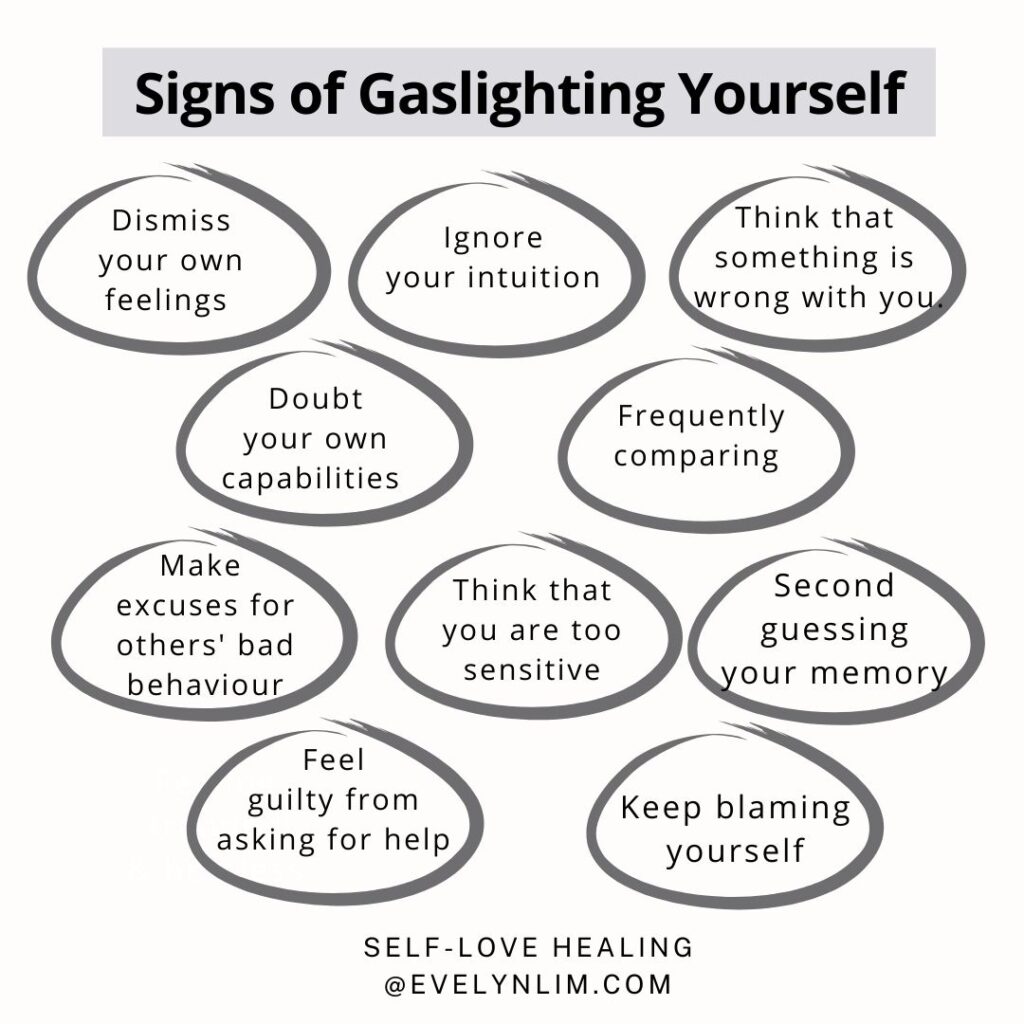5 Functional And Best Work Bags For Women
The post 5 Functional And Best Work Bags For Women appeared first on NotSalmon.
If you find yourself holding a lot of stuff in both hands despite carrying a work bag, it only shows that it’s not doing its entire job. Fortunately, there’s an easy fix. It’s time to replace the current one and […]
The post 5 Functional And Best Work Bags For Women appeared first on NotSalmon.
Sweep Her Off Her Feet With These 19 Love Letter Examples For Your Girlfriend
So, you want to write your girlfriend a love letter. Bravo to you! She’s going to love it. What woman doesn’t want to read words of love from her favorite guy? But finding the perfect phrase or word to describe our feelings can prove elusive. Words often fail when tasked with expressing gratitude, happiness, or …
How To Set Up Your Very Own Coffee Station At Home
The post How To Set Up Your Very Own Coffee Station At Home appeared first on NotSalmon.
For all you coffee lovers, setting up a coffee station in the comfort of your own home is the key to convenience, versatility and lots of morning happiness! Whether you are looking to simply make yourself a great cup of […]
The post How To Set Up Your Very Own Coffee Station At Home appeared first on NotSalmon.
How to Become More Social As You Get Older
The post How to Become More Social As You Get Older appeared first on NotSalmon.
If you don’t want to be lonely as you age here are some tips for how to become more social as you get older. When it comes to old age, elders are the ones that deal with the most loneliness. […]
The post How to Become More Social As You Get Older appeared first on NotSalmon.
The Role of Genetics in Mesothelioma
The post The Role of Genetics in Mesothelioma appeared first on NotSalmon.
Mesothelioma is a rare but quite aggressive cancer that affects the lining of the body’s organs, known as the mesothelium. It is mostly linked to exposure to asbestos. It’s a naturally occurring mineral fiber widely used years back in building […]
The post The Role of Genetics in Mesothelioma appeared first on NotSalmon.
Just Started Dating Someone? 11 Reasons Many Relationships Tank At The 3-Month Mark
Some countdowns are fun – the ball dropping on New Year’s Eve, the countdown to the end of a Friday workday, or the days getting closer to your birthday. Counting down the average length of a relationship before a breakup is not one of those things. In fact, many people worry about the 3-month relationship …
How You Can Schedule Healthy Money Dates into Your Calendar
A money date is one where you are working on your finances; whether on your own, with your partner or team. It is one where you specify a day and time on your calendar for a money-related activity that is meant to help you consolidate, improve and/or strengthen your personal or joint financial position. It may be that you need to work on
- budgeting,
- creating a spreadsheet to monitor expenses,
- discussing with your partner on financial options,
- reviewing your earnings,
- finding better ways to minimise tax,
- paying down your loans,
- moving of investment funds between accounts,
- getting updated advice from your financial planner, etc.
By scheduling money dates on a regular basis, you are better able to identify gaps, opportunities and ideas instead of making any personal financial activity as a once-a-year event.
Most entrepreneurs are focused on business planning at the start of a new year. Strategising typically involves looking at the calendar and setting some dates for product launches or workshops. Those who are conscious about work/life balance may also schedule self-care activities. Other than these mentioned, I find it important to schedule money dates on a regular basis. In fact, not just entrepreneurs, I would recommend setting money dates for anyone.
4 Broad Areas to Look Into for Healthy Money Dates
I am not a financial expert but the following areas are ones that I would recommend to get started…
1. Debt. Repay loans if it no longer make sense to hold on to debt. Make a comparison between the interest rates that you are paying and the rates of return that you can potentially earn. Restructure where necessary.
2. Income. Align with your overall vision on the life and business that you would love to create. Identify multiple sources of income.
2. Savings. Work on a savings plan for big purchases. Cut down expenses or unnecessary fat to build savings. Make a budget.
3. Investment. Review and rework investment plan if necessary. Take some calculated risks and consider creating a diversified portfolio that will help you to make money on money.
Cycle through the 4 broad themes on a monthly or quarterly basis during the year. From the broad themes, identify the specific tasks to be done on a weekly basis. Follow through on these tasks. Or hire a coach like myself to keep you accountable 
But….What if getting on a money date feels hard for you?
What if anything remotely related to personal finance gets your stomach churning in discomfort?
Or your face turning green?
Most people can’t get going on money dates if their emotions are in the way.
Any thought, idea or action that involves personal money brings up feelings of shame, guilt, blame, anger, sadness and so on.
Hence, the tendency is to avoid, procrastinate, pretend, hide and so on.
Well, recognise that any of these defensive behaviour are only meant to “protect” you but do not truly serve you.
If this is the case for you, I urge you to work on healing your relationship with money.
Healing Your Relationship with Money for Healthy Money Dates
Healthy money dates necessarily includes investing time and attention on healing and mindset work too. Not just external tasks, you are also working on yourself internally; where you are letting go of emotional money wounds or limiting money beliefs. Thus, healthy money dates support your overall emotional, mental and financial well-being.
In summary, healthy money dates include both activities…
- external (debt, income, savings and investment),
- internal (healing emotional wounds, reframing money beliefs, and rewriting money stories).
I recommend not procrastinating any longer on improving your relationship with money. There are opportunity costs due to the time value of money. Every day you are able to add a $1 more to savings is going to add to the value of your funds in the long run. Against the backdrop of rising interest rates, getting into financial shape has never been more imperative!
Letting go of any disruptive feelings or limiting money stories potentially leads to better clarity and a better way forward. Indeed, healing your relationship with money gives you the leverage that you need to strengthen your financial position. Follow through on the healthy money dates in your calendar and one year from now, you will be thankful that you started today.
Need more help in healing your relationship with money? Get my self-study Relationship with Money course here or if you need greater accountability, find out more about working together. Get on a discovery call with me to get your questions answered.
With love,
Evelyn Lim
Abundance Coach
Money Relationship Mentor
The post How You Can Schedule Healthy Money Dates into Your Calendar appeared first on Abundance Coach for Women in Business | Evelyn Lim.
Avoidants In Love: 13 Signs The Avoidant You’re Dating Loves You
Falling in love with an avoidant personality can be frustrating, as avoidants in love can be challenging to understand. Just how do avoidants show love? Sometimes it seems that you can’t connect with your partner. But, just as you are ready to give up, you become the center of their world. If you have known …
4 Tips To Cope & Manage The Stress of Moving Homes
The post 4 Tips To Cope & Manage The Stress of Moving Homes appeared first on NotSalmon.
Here’s a full list of coping tips to help you to reduce the stress of moving – shared by a bestselling happiness author who moved homes. The word “moving” has a double meaning when you’re moving from a home you’ve […]
The post 4 Tips To Cope & Manage The Stress of Moving Homes appeared first on NotSalmon.
Stop Gaslighting Yourself: Learn to Spot the 10 Signs
Could you be gaslighting yourself and not know it?
Apparently, the concept of gaslighting came from an old movie. In the show, the wife gradually feels disoriented after her husband turns the gaslights down slightly lower each night. When she notices the shift in lights, he would negate her observations by saying that it is all in her head. He’d also do things, such as hiding items and insisting that she lost them. His tactics are aimed at causing her to lose sanity.
While gaslighting appears to be an external psychological tactic, what’s troubling is that we can also be doing this to ourselves unconsciously. Self-gaslighting happens when we undermine ourselves so much such that we lose complete confidence. It can also happen if we are the subject of gaslighting by an external party and gradually over time, we start to internalise what was said to us.
It’s important to spot the signs of gaslighting, so that you can stop questioning and doubting yourself.
10 Signs of Self-Gaslighting
- Dismiss your own feelings.
- Ignore your own intuition.
- Thinking that you are “too sensitive”.
- Making excuses for other people’s bad behaviour.
- Believing that something is fundamentally wrong with you.
- Doubt your own capabilities.
- Frequently comparing yourself to others.
- Feel guilty when you ask for help.
- Keep blaming yourself.
- Second-guessing your memory.

Self-Love as The Antidote to Gaslighting
Stop gaslighting yourself and shift into self-love instead.
By loving yourself, you commit to healing yourself emotionally. You accept how you feel instead of invalidating your feelings. Neither do you ignore your intuition by thinking that you are “too sensitive”. You also hold the fundamental belief that there is nothing wrong with you and you are able to support yourself with loving and encouraging thoughts.
Self-gaslighting is often rooted in the lack of self-esteem or beliefs formed from childhood experiences. If you are gaslighting yourself and caught in self-sabotage, do reach out for help. Apply for a discovery call here to find out more about self-love healing and working together.
Love and abundance always,
Evelyn Lim
Emotional Mastery Coach
Self-Love Healing Specialist
The post Stop Gaslighting Yourself: Learn to Spot the 10 Signs appeared first on Abundance Coach for Women in Business | Evelyn Lim.


